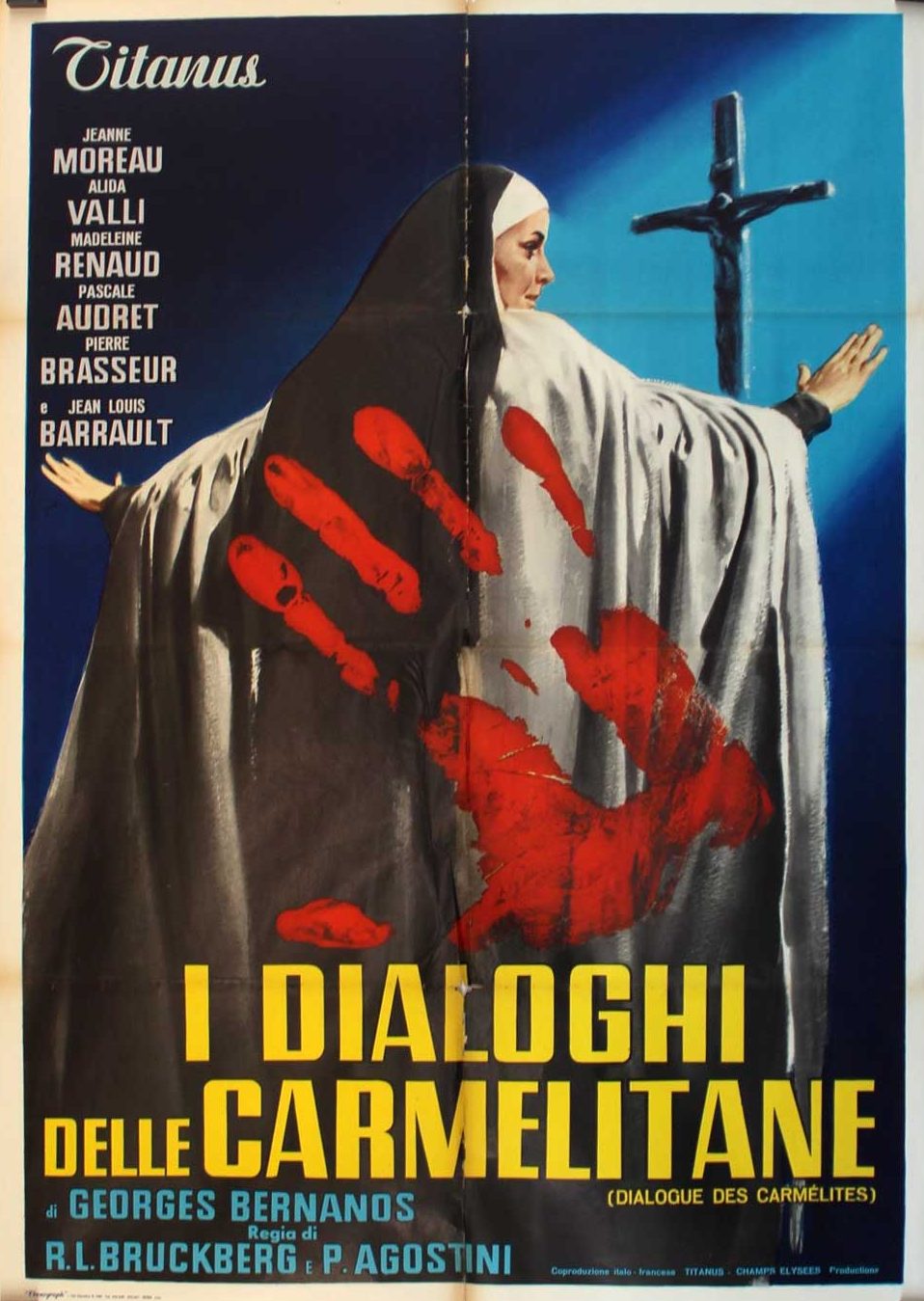One of the darkest episodes of the French Revolution retold in a highly emotional and intellectual historical reconstruction
Two wonderfully refined performances from Jeanne Moreau and Alida Valli as Carmelite nuns sentenced to the guillotine
The true story of the Martyrs of Compiègne, sixteen Carmelite nuns condemned to death during the French Revolution for refusing to give up their vows. The episode had already inspired a short story by Gertrud von Le Fort, a play by Georges Bernanos, and an opera by Francis Poulenc. This film gave new life to events that had already been recounted by various art forms. A dense examination of the conflict between two types of devotion (Faith and Law), it journeys deep into the psychology of the characters and the historical reconstruction is essential yet precise. The visual effectiveness of the film is thanks to co-director Philippe Agostini, who also worked as a cinematographer for Robert Bresson, Max Ophüls and Julien Duvivier. The cast boasts the presence of Jeanne Moreau and Alida Valli, whose purity and determination for their vocation sometimes gives way to strange sparks.
During the French Revolution, the Carmelite nuns of the Compiègne Convent are accused of being unpatriotic and forced to break up into small groups. Sixteen of them are arrested and sentenced to the guillotine.
One of the darkest episodes of the French Revolution retold in a highly emotional and intellectual historical reconstruction
Two wonderfully refined performances from Jeanne Moreau and Alida Valli as Carmelite nuns sentenced to the guillotine
The true story of the Martyrs of Compiègne, sixteen Carmelite nuns condemned to death during the French Revolution for refusing to give up their vows. The episode had already inspired a short story by Gertrud von Le Fort, a play by Georges Bernanos, and an opera by Francis Poulenc. This film gave new life to events that had already been recounted by various art forms. A dense examination of the conflict between two types of devotion (Faith and Law), it journeys deep into the psychology of the characters and the historical reconstruction is essential yet precise. The visual effectiveness of the film is thanks to co-director Philippe Agostini, who also worked as a cinematographer for Robert Bresson, Max Ophüls and Julien Duvivier. The cast boasts the presence of Jeanne Moreau and Alida Valli, whose purity and determination for their vocation sometimes gives way to strange sparks.
During the French Revolution, the Carmelite nuns of the Compiègne Convent are accused of being unpatriotic and forced to break up into small groups. Sixteen of them are arrested and sentenced to the guillotine.
